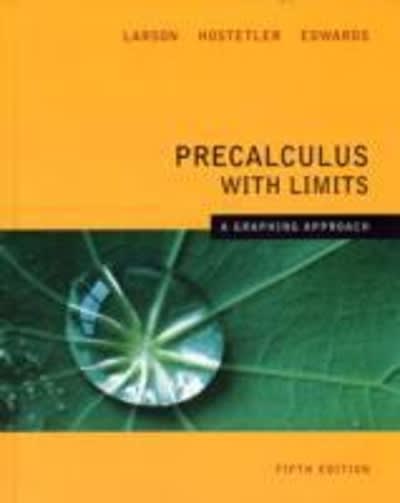Answered step by step
Verified Expert Solution
Question
1 Approved Answer
A news article that you read stated that 51% of voters prefer the Democratic candidate. You think that the actual percent is smaller. 107 of
A news article that you read stated that 51% of voters prefer the Democratic candidate. You think that the actual percent is smaller. 107 of the 254 voters that you surveyed said that they prefer the Democratic candidate. What can be concluded at the0.01 level of significance?
- For this study, we should use Select an answer z-test for a population proportion t-test for a population mean Correct
- The null and alternative hypotheses would be: Ho: ? p Correct Select an answer < > = Correct Correct (please enter a decimal) H1: ? p CorrectSelect an answer < > = CorrectCorrect (Please enter a decimal)
- The test statistic ? t z Correct = (please show your answer to 3 decimal places.)
- The p-value = (Please show your answer to 4 decimal places.)
- The p-value is ? > Correct
- Based on this, we should Select an answer reject accept fail to reject Correct the null hypothesis.
- Thus, the final conclusion is that ...
- Interpret the p-value in the context of the study.
- Interpret the level of significance in the context of the study.
- There is a 1% chance that the earth is flat and we never actually sent a man to the moon.
- There is a 1% chance that the proportion of voters who prefer the Democratic candidate is smaller 51%.
- If the population proportion of voters who prefer the Democratic candidate is 51% and if another 254 voters are surveyed then there would be a 1% chance that we would end up falsely concluding that the proportion of voters who prefer the Democratic candidate is smaller 51%
- If the proportion of voters who prefer the Democratic candidate is smaller 51% and if another 254 voters are surveyed then there would be a 1% chance that we would end up falsely concluding that the proportion of voters who prefer the Democratic candidate is equal to 51%.
- There is a 51% chance of a Type I error.
- If the population proportion of voters who prefer the Democratic candidate is 51% and if another 254 voters are surveyed then there would be a 0.23% chance fewer than 42% of the 254 voters surveyed prefer the Democratic candidate.
- If the sample proportion of voters who prefer the Democratic candidate is 42% and if another 254 voters are surveyed then there would be a 0.23% chance of concluding that fewer than 51% of all voters surveyed prefer the Democratic candidate.
- There is a 0.23% chance that fewer than 51% of all voters prefer the Democratic candidate.
- Incorrect
- The data suggest the population proportion is not significantly smaller 51% at = 0.01, so there is sufficient evidence to conclude that the proportion of voters who prefer the Democratic candidate is equal to 51%.
- The data suggest the population proportion is not significantly smaller 51% at = 0.01, so there is not sufficient evidence to conclude that the proportion of voters who prefer the Democratic candidate is smaller 51%.
- The data suggest the populaton proportion is significantly smaller 51% at = 0.01, so there is sufficient evidence to conclude that the proportion of voters who prefer the Democratic candidate is smaller 51%
- Correct
Step by Step Solution
There are 3 Steps involved in it
Step: 1

Get Instant Access to Expert-Tailored Solutions
See step-by-step solutions with expert insights and AI powered tools for academic success
Step: 2

Step: 3

Ace Your Homework with AI
Get the answers you need in no time with our AI-driven, step-by-step assistance
Get Started


